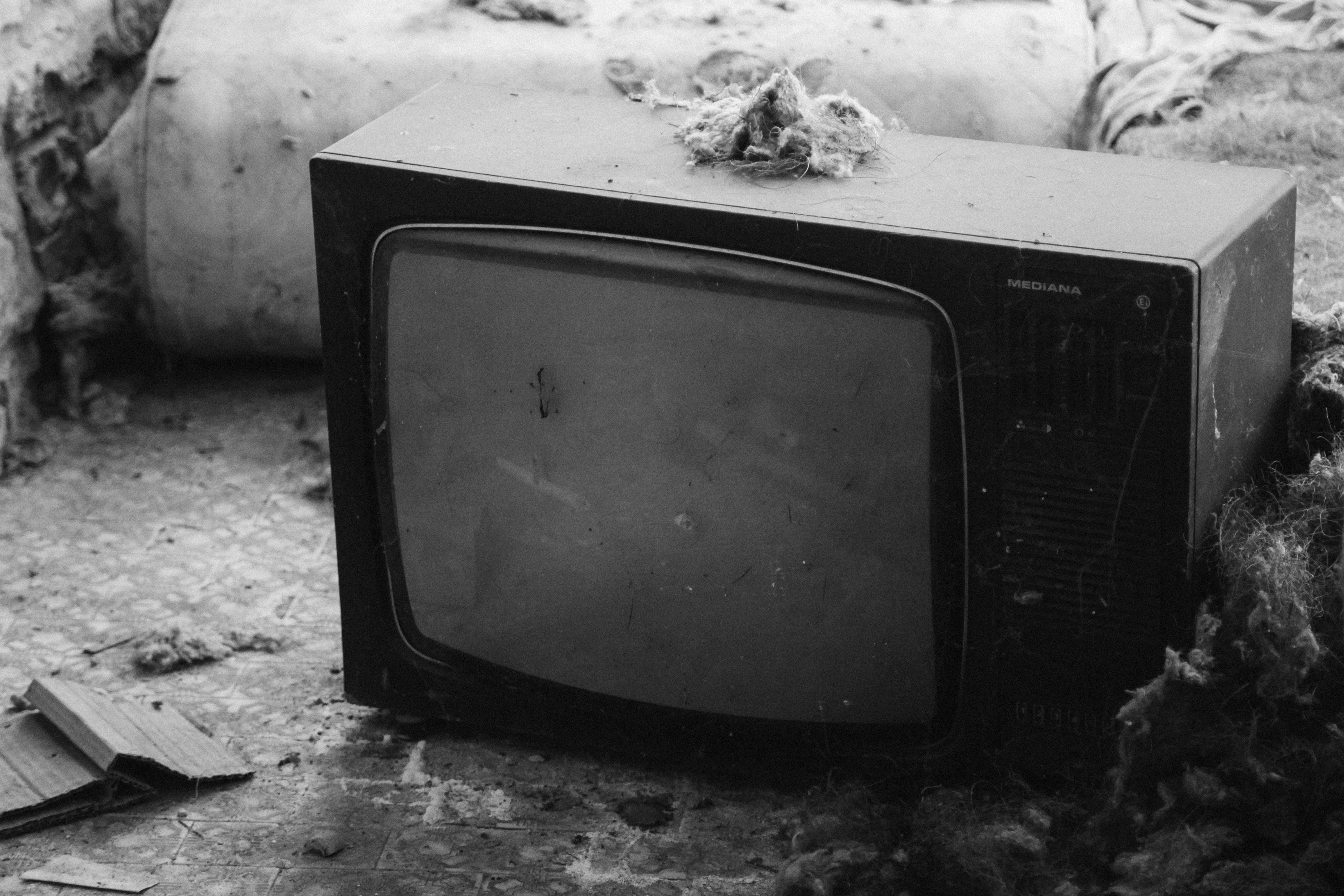
Remember those ridiculous disaster movies from the ‘90s?
The apocalypse was supposed to be spectacular — fireballs raining down, great floods swallowing continents, society crumbling under the weight of its collective sins (those are found in the more religious renditions), desperate struggles in grimy ruins, cannibalism and violent gangs in sexy leather outfits, perhaps a not-so-moving romance to hold the audience’s attention, a smooth redemption arc or two, always some stupid child that gets in trouble. That's the way stories have sold the collapse of society. A marketing gag, as we found out.
In truth, it’s all so much more boring.
Reality has an odd sense of humor. Our dystopia is an endless waiting room comparable in experience and excitement to a visit to a British doctor. Wherever one goes one finds the same beige bureaucracy, the same tired authorities and their manufactured outrages on a repeating loop, a VHS stuck forever, the same wars rambling on in low-level static no one can quite decipher. Scrolling through feeds of recycled garbage, manufactured consent; artificial hysteria dutifully alternating with hollow reassurances from disembodied state-level and/or corporate puppets.
This is the eternal status quo — this is capitalist realism on a metaphysical scale — this is boring dystopia. You are quite welcome!
Boring dystopia — Mark Fisher’s grey slur
The idea of ‘boring dystopia’ gained recognition through the brilliant work of the late Mark Fisher, a cultural theorist and philosopher with a keen eye for the ways our capitalist structures breed disillusionment, alienation, and apathy. Boring dystopia is a departure from the flashy, explosive end-of-the-world scenarios we were fed by Big Hollywood. No, ours is an apocalypse of slow, creeping malaise — bureaucratic, stagnant, grey, and deeply unsatisfying. (There’s not even a Goddamn climax.) It’s a deep, comprehensive intuition of how the world is broken beyond repair, but that nothing will ever truly change; a perpetual limbo where grand visions of both anarcho-communist utopia and fiery apocalypse have faded, leaving a vast, empty middle ground.
Fisher, being the troublemaker he is, argued that this boredom is not a personal failing, but a structural consequence of modern capitalism. The endless demand for productivity, the illusion of choice within excruciatingly narrow confines, and the constant stream of distractions all contribute to a sense of pervasive numbness. Fears and anxieties become predictable and marketable, loops are designed to keep consumption high, a population made docile through material comfort — the sublimation of all genuine action or transformation.
Spreadsheets, lukewarm coffee, flickering fluorescent lights. Pointless grind to be sliced, diced, and sold off to the highest bidder.
Boring cities — fluorescent pavement
A long, long time ago, they said that globalization would usher in an era of cultural vibrancy — a magnificent fusion of global civilization with unexpected results. What we got is the uncanny monotony of a globalized strip mall. Concrete stretches to the horizon, punctuated by the same chain stores, the same franchises sucking the souls out of cities. Mere facsimiles — interchangeable blocks of glass and steel, devoid of distinct character apart from a strategically placed landmark or two to appease eager tourists. It's as if an AI was tasked with designing the most efficient, inoffensive cityscape; a bland, post-modern template to stamp across the planet.
Still, it yielded the very interesting art genre of ‘the Backrooms.’
Travel, once the promise of escape and adventure, now means experiencing a slightly different shade of grey for a little while. Book a flight, pack your suitcase, another air-conditioned box to ferry you to another curated experience. All Instagram photos tell the same story: posed smiles by the same monuments, the same pristine beaches filtered to impossible perfection. It's a performance of adventurousness, a meticulously managed illusion to incite envy among those stuck at home, too poor to follow.
Boring people — ain’t nobody got time
The greying of the world is mirrored within us. It starts early, that hollowing out. School offers tantalizing glimpses of other possibilities, sparks of intellectual curiosity, the fierce joy of a mind engaged. Then it's over. Thrust into the workforce army, the sparks are ruthlessly snuffed out. Time becomes a commodity, leisure a shameful — because non-productive — indulgence. Conversations wither into updates on busy schedules and the slow creep of ailments.
"What do you like to do?" You ask this question at a party, a flicker of hope that there might be something beneath the small-talk surface. Too often, you're met with blank stares, shrugs, or mumbled excuses about not having enough time. It's as if everyone agreed to turn the lights off to better fit into the machine. I know for a fact that they once burned brightly in all of us. So many friends whose sole occupation outside work is consuming entertainment.
And for those who do resist, who cling to some fragment of passion? Their rebellions have been co-opted and sold back as quirky consumer choices. See ‘green capitalism,’ see the month-long corpo-rainbow logos, see anti-capitalist merch. The insatiable beast has learned to commodify even dissent.
Boring disaster — consternation in attention cycles
Remember when catastrophe used to rile you up? Now it's mostly background noise. Another report on irreversible climate damage? A shrug. Political scandals, wars rumbling in distant and not-so-distant countries, corruption laid bare? Just more confirmation of a rotten system, met with a sigh and another ‘what-can-you-do?’ We've become true connoisseurs of disaster, we know all about them, we follow all the news, yet there's no corresponding action, no surge of fury to shake up the boring dystopia.
Maybe we're just tired. Exhausted by the daily 9-to-5 grind, the constant drip-feed of anxiety, and the nagging suspicion that there's nothing left worth fighting for. We appear content with watching the ship slowly sink.
The exciting life
It's tempting to succumb entirely — to sink into comforting numbness, accept the prepackaged life of work and consumption. What's the alternative? Grand revolutions have ceased to materialize, their window of opportunity passed (and failed), and any individual act gets swallowed whole and spit out into nothingness.
But perhaps there's another type of rebellion left. A rebellion of the soul. Carving out scraps of time to nurture the things that make one feel alive. Protecting and nurturing passions like precious embers in a rainstorm. Seeking out the rare experiences, refusing assimilation.
Screaming into the void, even if no one hears you. Spitting defiance into corpo’s face. Letting them know there's a flicker left, a stubborn refusal. Perhaps it means nothing in the end. But at least you lived, then, not merely endured, your time under the grey sky.
Thank you for reading,
Antonio Melonio
You can also support my ever-lasting pursuit of freedom and self-determination on Patreon (starting at $2 a month), or leave a tip on PayPal. Thank you so much.
What to read next:







I won't give up either! There's always something worth fighting for.
I strive to "protect and nurture passions like precious embers in a rainstorm." Thanks for this piece. I hadn't framed the future playing out like this, yet, but it's now imprinted in my vision.